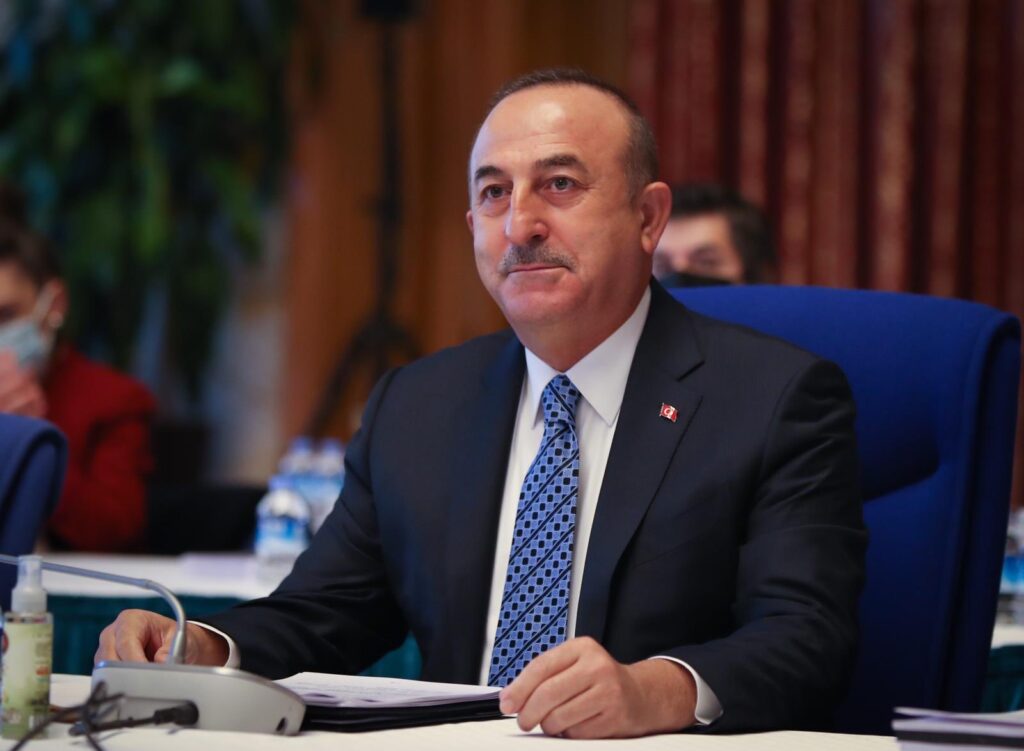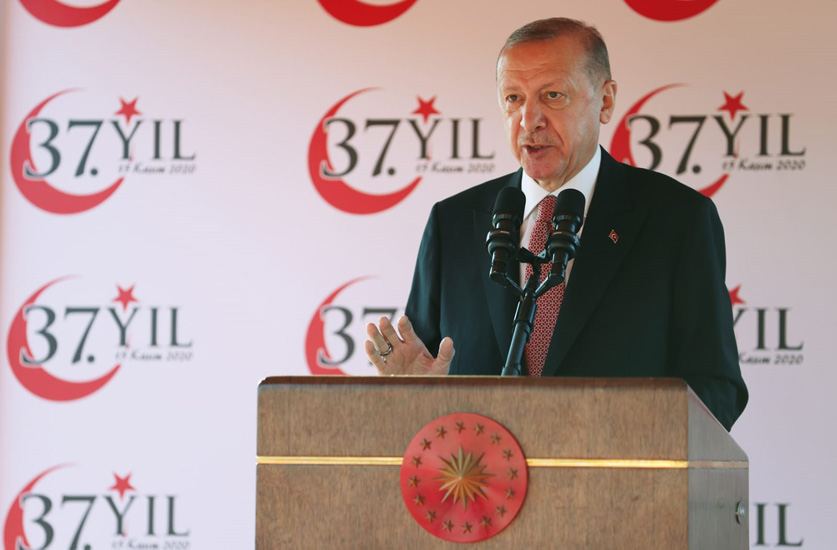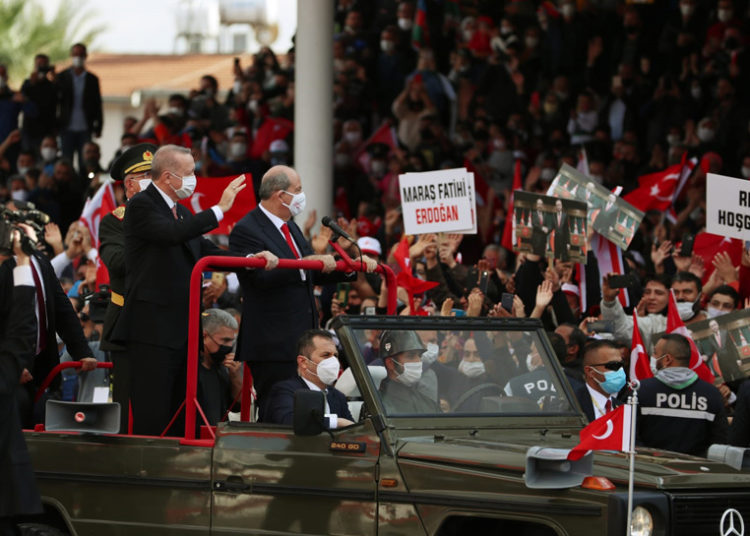Nordic Monitor
In a reversal from its past approach, the Turkish government has started pushing a two-state solution for divided Cyprus as part of what observers believe is a trump card against an anti-Turkey coalition in the eastern Mediterranean and a preemptive diplomatic maneuver to pressure the European Union ahead of possible sanctions from the bloc.
Isolated in the region, the Islamist government of President Recep Tayyip Erdoğan and its far-right allies have turned to alternative diplomatic moves in order to break the anti-Turkey siege and convince stakeholders to bargain with Turkey. By insisting on a two-state solution in Cyprus, which will increase tensions there, Ankara is aiming to create a new front line in the regional dispute and force the bloc to deal on a range of matters including energy resources in the eastern Mediterranean.
To this end Turkish President Erdoğan has thrown his weight behind 60-year-old Ersin Tatar, the then-prime minister who re-opened the beachfront of Varosha on October 8 in a move that was backed by the Turkish government and angered the Greek Cypriot administration, for the presidential election in northern Cyprus.
President Erdoğan had called for a “two-state” solution in Cyprus during a high-profile visit to the north of the island on November 15. Recently, Foreign Minister Mevlüt Çavuşoğlu reiterated Turkey’s call on the international community to respect the Turkish Cypriots’ will for a two-state solution on Cyprus during a hearing at parliament on next year’s budget.

Çavuşoğlu’s comments came during a presentation on his ministry’s budget and structure as well as a Turkish foreign policy synopsis and priorities at parliament’s Plan and Budget Committee on November 24.
“… Therefore, the two-state solution model [in Cyprus] should now be discussed instead of a federation [model]. The will of the Turkish Cypriots manifested itself in that direction in the last election. We expect everyone to respect this will,” Çavuşoğlu said according to the minutes (page 8) of the meeting.
Ankara recognizes the Turkish Cypriot part of the island as an independent state, and it has no diplomatic relations with the government of Cyprus, which is a member of the European Union. Cyprus has been divided into a Turkish Cypriot north and a Greek Cypriot south since an intervention by Turkey 1974.
Eighth page of the committee meeting minutes:
Erdoğan visited the island on November 15 to celebrate 37 years since the unilateral declaration of independence of northern Cyprus. He was visiting the Turkish Cypriot side after Tatar won last month’s presidential election. Tatar’s predecessor, Mustafa Akıncı, had backed reunification of the island.
The outcome was close, however, with Tatar, who had been endorsed by the Turkish government, securing 51.74 percent of the vote and former president Akıncı 48.26 percent. His victory is expected to cede even more control of northern Cyprus’ internal affairs to Ankara and hamper efforts to resolve the Cyprus dispute.
“Our priority is to ensure a fair, lasting and sustainable solution in Cyprus that ensures the Turkish Cypriots have security and legal rights,” the Turkish president told an audience after his arrival.
“There are two different peoples and two separate states in Cyprus. The two-state solution needs to be negotiated on the basis of sovereign equality,” said Erdoğan, the state-run Anadolu news agency reported.
Underlining the necessity of sovereign equality as a basis for such negotiations, Erdoğan said the “will of the Turkish Cypriots was manifested in this direction in the last election.” He stressed that the Turkish Cypriots are the only victims in the Cyprus issue and have been ignored for years as their rights were usurped.
He later visited Varosha, a beach town that has been fenced off and abandoned since 1974. Parts of the resort were reopened days before the presidential election in a move that was condemned by the international community and the UN Security Council (UNSC). According to UNSC Resolution 550 (1984), Varosha can only be resettled by its original residents.
In Varosha, Erdoğan stated that the decision to reopen the town was meant to eliminate existing grievances, not create new ones. “After having seen the closed Maraş [Varosha], I thought, ‘Why has this beautiful Maraş area been kept closed to the local people’,” he said at the resort.

In an interview with Kathimerini a month after the presidential election, Tatar reiterated his opposition to a bi-zonal, bi-communal solution for Cyprus, insisting on a two-state model and calling for a “border adjustment” between the two sides.
Tatar was serving as prime minister of the Turkish Republic of Northern Cyprus (KKTC) at the time of the two rounds of the election. During his election campaign Tatar stressed his support for a two-state solution, a marked change from Akıncı, who favored reunification with the Greek-speaking majority.
Akıncı’s relationship with Ankara had come under strain, especially after he described the prospect of the north’s annexation by Turkey as “horrible” in February.
In his victory speech, Tatar thanked President Erdoğan, with whom he has strong relations. “They will never rupture the ties between us and Turkey,” he said. “Yes, we are open to an agreement with Cyprus, but the Turkish Cypriot people will accept the terms of this agreement with a free will,” he added.












